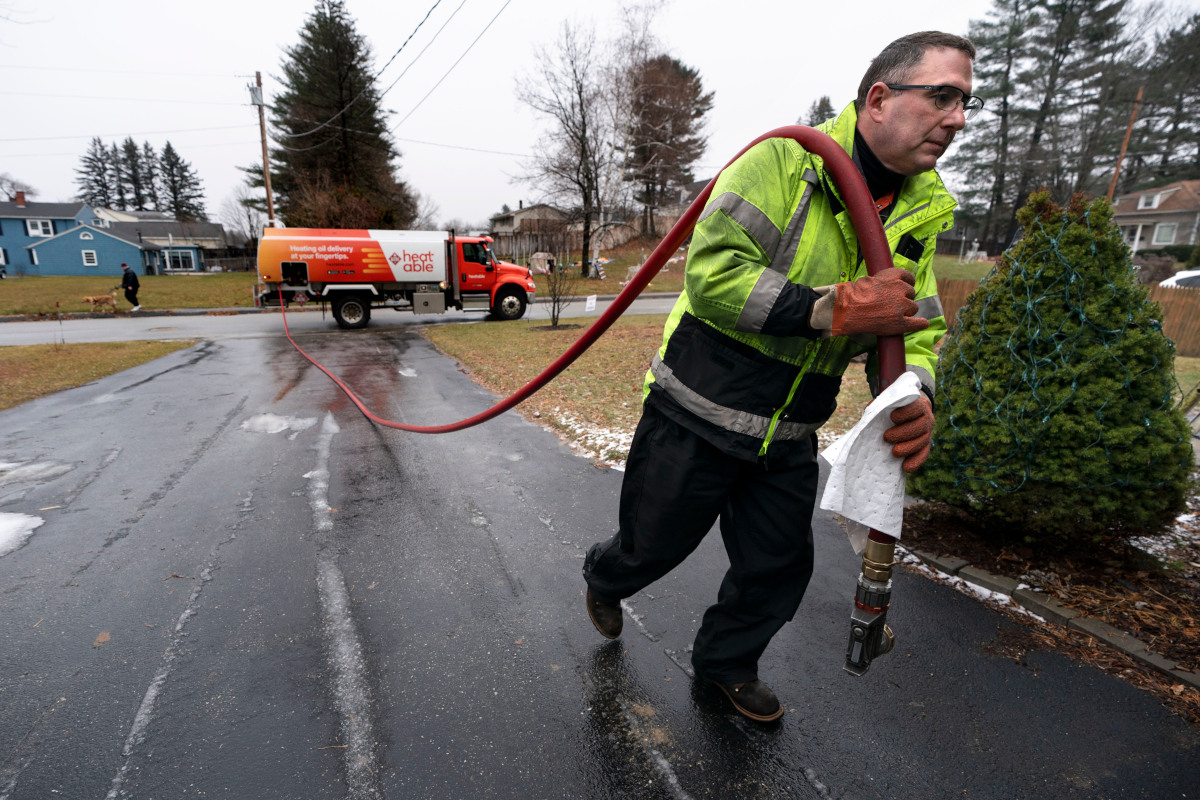A year after the war in Ukraine drove record-high fossil fuel prices for winter heating in oil-dependent Maine, demand for efficient electric heat pumps remains steady despite new challenges.
Spikes in fuel prices don’t tend to immediately translate to increased heat pump demand, officials said, but rather may spark new interest in oil and gas alternatives and other ways to cut back on heating costs.
“We do see a lot more visits (after a price spike) to the Efficiency Maine website and call center, looking for information about rebates and how to find a contractor,” said Michael Stoddard, the executive director of the quasi-governmental agency, which provides rebates for energy-saving upgrades.
In the months after such a spike, he said, heat pump contractors may start to get busier with new jobs.
“Traditionally these consumers were curious to learn if they could save money by switching to propane or natural gas, or burning firewood or pellets,” he said. “But now it seems they are mostly interested in switching to heat pumps because they cost less to operate and deliver air conditioning in the summer.”
Many Maine contractors say summer is their busiest time for this reason, and have been booked out months on heat pump installations since well before heating oil prices neared $7 a gallon a year ago.
“I am busy all year round,” said Sam Black, the owner and operator of Blacks Heat Pumps in Glenburn. He said he’s already had a few prospective customers ask about new rebates expected from the Inflation Reduction Act in 2024. Maine is still deciding on how it will allocate billions in funding from that package.
Ripple effects continue from global crises
A note on the website of Midcoast Energy Systems, an HVAC contractor based in Damariscotta, Maine, says “manufacturer and distribution supply chain issues” have been making it tough to maintain a consistent heat pump inventory.
“Unfortunately, this does delay our ability to schedule installs as quickly and regularly as we’d like,” the company’s website says. “We are, however, doing the best we can with these market restrictions to work with customers as efficiently as possible.”
In the year since last winter’s fuel price crisis, Black has also heard “a lot of complaining” from his heat pump customers about high electricity rates. Already among the highest in the contiguous U.S., these rates increased sharply in Maine in January 2023.
The increase was largely due to the same geopolitical factors that made heating oil so expensive last winter — constrained global fossil fuel supplies and high prices, especially for fracked gas, which powers much of the New England grid and also supplies far more heating in most of the region outside Maine.
By the same token, Maine regulators announced this week that electric rates will be reduced in 2024. “This is a much different scenario than we saw last year at this time, with natural gas prices coming down significantly since then,” said state Public Utilities Commission chair Phil Bartlett in a statement.
People who installed a heat pump in summer 2022, Black said, may have been caught off guard by a high electric bill after the new rates took effect at the height of the cold season — though an electric bill for one or two home heat pumps would still be far less than a typical oil bill, even at more average prices.
Lower fuel prices, slow change
The Maine Governor’s Energy Office tracks heating fuel prices on a weekly basis. They reported that the high heating oil price in the state was $4.65 per gallon as of Nov. 13, 2023, compared to $6.74 in the same week in 2022. In that week, even the low-end oil price was higher than the current highest price in the state.
Kerosene prices were above $7 per gallon last November and now stand at $4.99 on average in Maine. Propane for home heating has decreased in price by about a quarter, down to just over $3 a gallon to end November.
“As we approach winter, energy prices are expected to be lower than the prior two years,” said energy office director Dan Burgess in a Nov. 9 press release announcing a state guide to saving money on home heat. “However, volatile energy markets around the world continue to impact heating bills here at home.”
Maine relies more on oil for home heat than any other state, but this is slowly changing. The state said in its press release that about 56% of Mainers used heating oil in 2022, down from more than 60% in much of the past decade, according to the U.S. Energy Information Administration.
Electric heat users increased from about 6% of the state’s population to nearly 11% in the same period.
“From 2018-2022, Maine saw a 10 percent decrease in heating oil as a primary fuel for home heating with an increase in households utilizing electricity during that time,” the state energy office said in its release. “The period coincides with record adoption of high efficiency air source heat pumps in Maine.”
Efficiency Maine did not have data immediately available to illustrate the relationship between heat pump demand and fossil fuel prices. But the agency told The New York Times that as of early November, they’d given rebates for more than 32,000 new heat pumps so far in 2023, compared to 28,000 last year.
The state announced this past summer that it had surpassed a target of installing 100,000 new heat pumps by 2025. Gov. Janet Mills upped the goal to 175,000 more heat pumps by 2027.
The state climate plan, due for its first four-year update at the end of next year, seeks to encourage more multi-unit or “whole home” heat pump systems as total fossil fuel replacements by 2030. Officials have said these goals are directly based on modeled reductions in carbon emissions.

